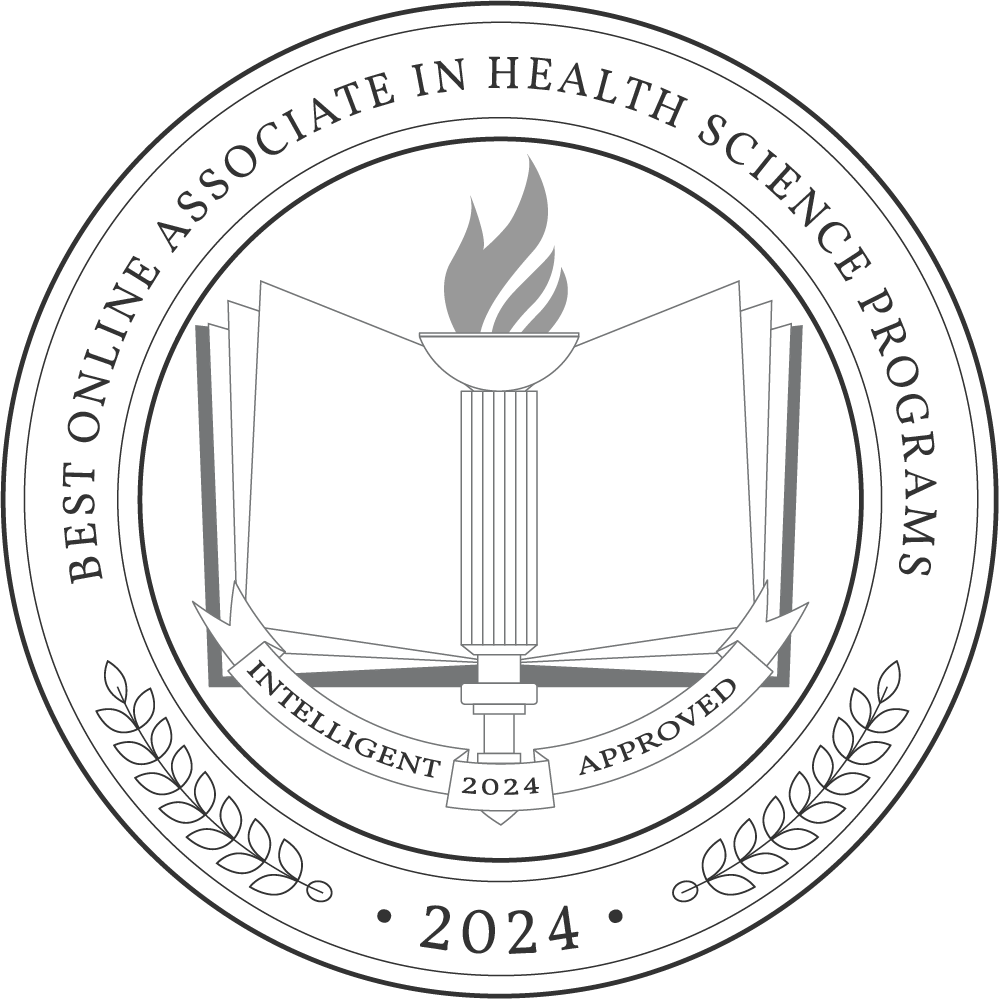Why This Matters
-
MOST MEDICAL ASSISTANTS HAVE POSTSECONDARY EDUCATION
According to the Bureau of Labor Statistics, the typical level of education for entry-level positions in this occupation is a medical assistant certificate or associate degree.
-
105,900 MORE MEDICAL ASSISTANTS NEEDED BY 2032
Thanks to an aging population and increasing demand for preventive medical care, the need for medical assistants is projected to grow 14% by 2032.
-
EARN MORE THAN $38,000 ANNUALLY
The median salary for medical assistants is $38,270 per year, with the top 10% of workers in this profession earning more than $51,710. The highest earners in this career are those working in outpatient care centers.
Our Research
This list features some of the best online associate in health science degree programs at top colleges nationwide. Each school featured is a nonprofit, accredited institution — either public or private — with a high standard of academic quality for post-secondary education.
We evaluated each school’s program on admission, retention, and graduation rates as well as tuition costs, faculty, reputation, and the resources provided for online students. Then, we calculated the Intelligent Score on a scale of 0 to 100. Read more about our ranking methodology.
Next, we compared this comprehensive list of online associate in health science degree programs to a list of aggregated college rankings from reputable publications like U.S. News & World Report, among others, to simplify a student’s college search. We pored through these rankings so students don’t have to.
- 54 hours to write this article
- 57 universities and colleges we assessed
- 76 education programs we compared
The Top 50 Online Associate in Health Science Programs

Discover More Options
What You Should Know About This Degree
When it comes to postsecondary education in healthcare, there are several options. While a health science degree focuses on patient care, a degree in healthcare administration lets you take on support roles, such as healthcare coordination and secretarial work. Alternatively, a degree in nursing is less generalized than a degree in health science and focuses exclusively on patient treatment.
When selecting a program, it’s important to make sure it’s accredited by an agency that’s approved by the U.S. Department of Education. These agencies routinely review programs and student services offered by schools.
Graduating with an associate degree in healthcare comes with plenty of career opportunities. As mentioned earlier, medical assistants are in high demand. Other career choices, such as radiologic and MRI technologist, are expected to experience faster-than-average growth.
Depending on their location and chosen career path, students may need to obtain additional state licensing prior to starting work.
What’s Next?
Here are some questions to ask when researching online associate in health science programs:
- Am I eligible for this program? Typically, admission to an associate degree program in health science requires a high school diploma or GED, along with good marks in math and science. A limited number of schools may require some work experience in healthcare or a related field.
- Are courses offered synchronously or asynchronously? Many of the programs on our list offer both types of classes, so it’s important to make sure a program offers a schedule and delivery format that suits your preferences and needs.
As you research programs in health science, take time to carefully track important information such as application deadlines, admission requirements, and options for financial assistance.
If your chosen school doesn’t provide much support for obtaining financial aid, research options such as state grants and scholarships from local organizations.